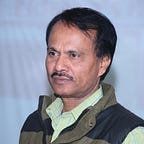Fijian apology: a healing touch to the historical misdeeds
Fiji PM Sitiveni Rabuka’s apologized to Fijian of Indian origin for the military coup of 1987. It comes ahead of the Indo-Pacific Island Summit, to be visited by PM Narendra Modi. Rabuka made this confession at the Reconciliation Service between the Methodist Church and Girmityas in Suva.
What was the issue?
· In this coup, elected government of Fijian PM Timoci Bavdra was overthrown.
· This was the result of long tension brewing between indigenous Fijian and Indo-Fijian ethnic groups (comprising 46% & 49% of then Fijian population respectively).
· It happened after the Fijian general election of April 1987 resulted in the replacement of the indigenous led conservative government of PM Ratu Sir Kamisese Mara with a multi-ethnic Labour led coalition led by Timoci Bavdra, that was supported mostly by the Indo- Fijians.
· The coup was led by then Lieutenant Colonel, Sitiveni Rabuka, who then highlighted the case of racial discrimination against the indigenous Fijians.
· Supreme Court of Fiji declared the coup unconstitutional. Then Governor- General attempted to negotiate between the warring factions that became famous as Deuba Accord. The Accord provided for the National Unity government.
· Rabuka then staged second coup on 25th September, 1987. He declared Fiji as republic on 10th October, removed Governor General and declared himself head of Interim Military Government.
· UNO denounced the coup, Commonwealth expelled Fiji from the grouping, US, Australia and others imposed different forms of sanctions.
· A new constitution was ratified in 1990, in which the offices of President and PM, along with 2/3rd of the Senate and a substantial majority of the House of Representatives, were reserved for the indigenous Fijian.
· These racially discriminating provisions were overturned by a Constitutional Revision in 1997 and Fiji became a Republic within the Commonwealth of Nations in 1997.
· 2000 coup again resulted in the removal of elected government of Fiji, led by Indo-Fijian PM Mahendra Choudhary by Republic of Fiji Military Commodore Frank Bainimarama. Court again declared coup illegal and finally elected government was restored in 2001.
What is its significance for India?
1. It was announced just before Indo-Pacific Island Summit, shows Fijian eagerness to have improved relation with India. However, initiative to improve relation was made PM Modi with his first visit in 2014. He was welcomed by then PM Bainimarama, who had removed 1st Indo-Fijian elected PM Mahendra Choudhary.
2. All these events shows the growing importance of Fijian politics when both ex-coup leaders Rabuka and Bainimarama, who directly tried their best to oust Indo-Fijian from politics.
3. Both have realized the economic contribution of Indo-Fijian and their exodus after coups had resulted in economic crisis of Fiji. So, they have reconciled.
4. India-Pacific Island Summit has also brought Fiji close to India.
5. Tension between China and Australia, the regional and largest trade partner of Fiji; has also changed Fijian thought in favour of India.
